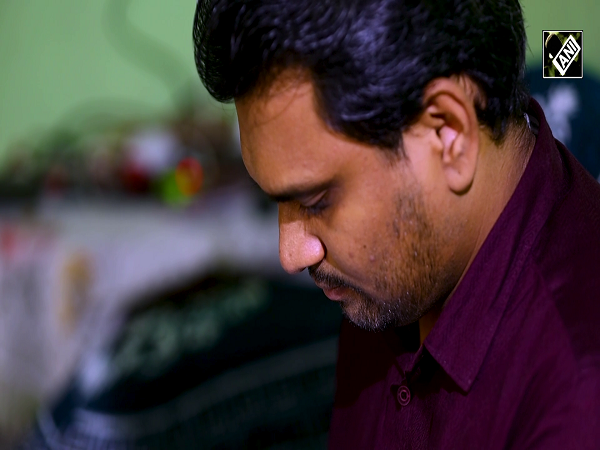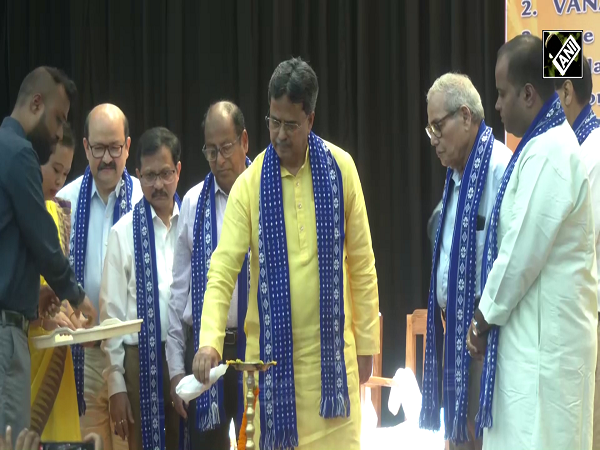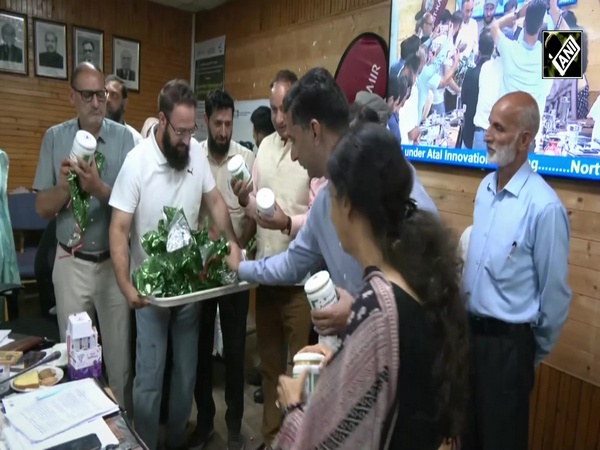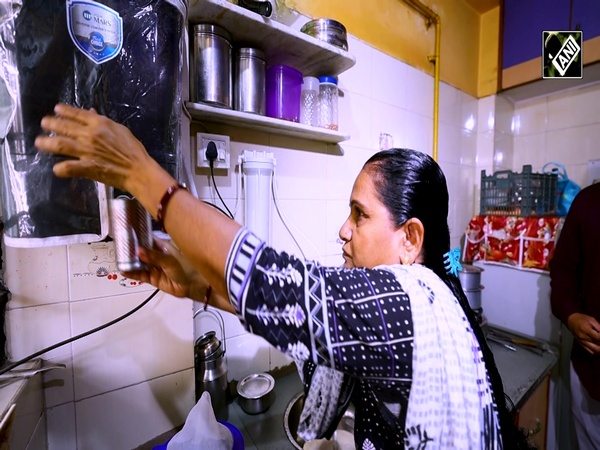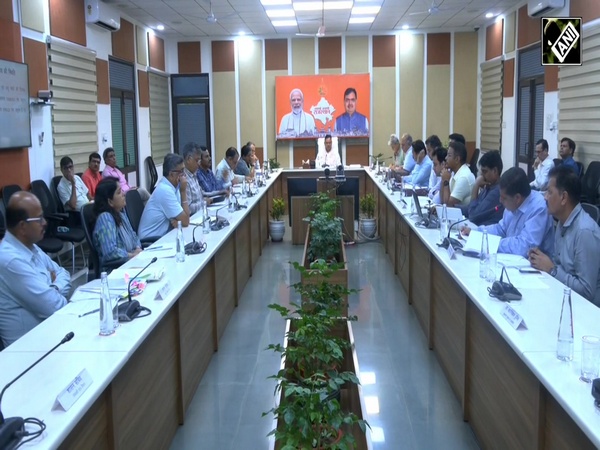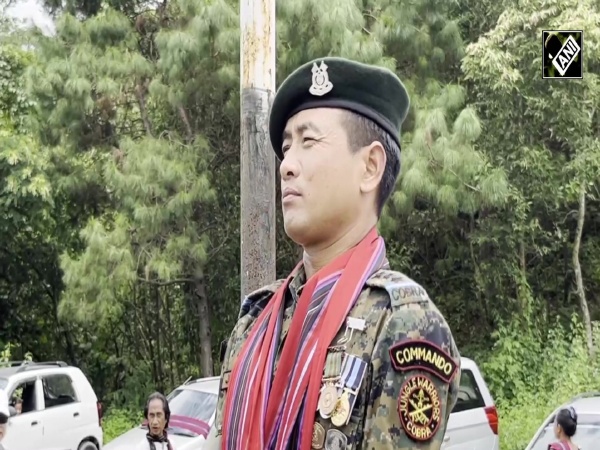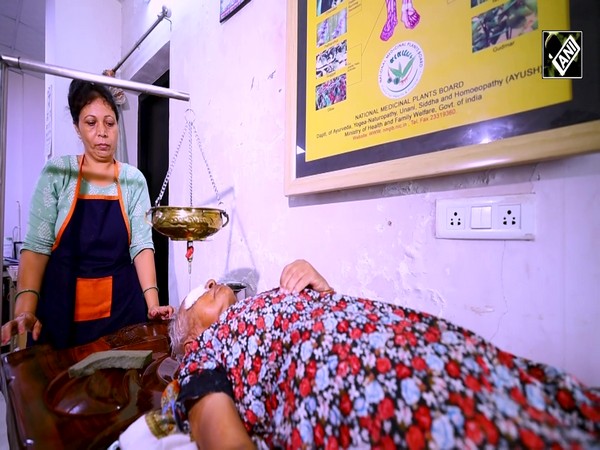First Environment and Climate Sustainability Working Group meeting concludes in Bengaluru
Feb 11, 2023

New Delhi [India], February 11 : The first G20 Environment and Climate Sustainability Working Group (ECSWG) meeting concluded in Bengaluru on Saturday on a positive note with all G20 countries showing interest and commitment to constructively work towards the objective of the three priority areas of Arresting Land Degradation, Accelerating Ecosystem Restoration and Enriching Biodiversity; Promoting a Sustainable and Climate Resilient Blue Economy and Encouraging Resource Efficiency and Circular Economy.
The first meeting of the ECSWG marks the beginning of constructive discussions within G20 countries for a sustainable future, led by India's G20 presidency.
The three-day meeting of the ECSWG from February 9 to February 11, 2023, was led by the Ministry of Environment, Forests and Climate Change (MoEFCC), Government of India.
Ministry of Environment, Forest and Climate Change said in a statement that the meeting began with a side event centred around sharing of best practices for ecosystem restoration of forest fire and mining-affected areas followed by a visit to the Bannerghatta National Park and Kalkere Arboretum to showcase the forest ecosystems of Karnataka, ecosystem restoration and ecotourism models, as well as wildlife protection.
The second day started with an inaugural address by the Union Minister of Housing and Urban Affairs and Petroleum and Natural Gas, Hardeep Puri.
After that, the welcome address was delivered by Secretary, MoEFCC, Leena Nandan. She highlighted that India intends to address matters of environment and climate change through an action-oriented and consensus-driven approach.
"The ECSWG will work in close collaboration with other G20 key working groups to holistically address issues relating to environment, sustainability and climate change," she said.
The discussions during the first half of the second day revolved around methods to restore land-based ecosystems affected by anthropogenic causes and enhancement of the Global Biodiversity Framework.
In the second half, discussions were held on the creation of circular economies in various sectors including steel and biowaste and the role of extended producer's responsibility in the creation of a circular economy.
The idea of a G20 industry coalition for resource efficiency and the circular economy was also tabled.
The sessions saw the enthusiastic participation of delegates from all countries.
During this session, the Joint Secretary of the G20 Secretariat, Eenam Gambhir, made a presentation on the proposed High-Level Principles of LiFE and the Green Development Pact as potential deliverables, being steered by the Development Working Group.
A cultural event was organized in the evening to showcase the rich cultural heritage of Karnataka and provided a unique 'India' experience to the delegates who had arrived from 29 Countries.
The third and last day commenced with the session focusing on the theme of 'Sustainable and Climate Resilient Blue Economy'.
The opening remarks were made by the Secretary, the Ministry of Earth Sciences, Dr M Ravichandran.
The Oceans and Blue Economy discussions covered a range of issues including marine litter, conservation and enhancement of coastal and marine ecosystems and marine spatial planning, over three meetings and one side event. The focus of discussions was on the problem of marine plastic litter and its adverse impacts.
The Presidency presented the inception report of the technical study on 'Accelerating the transition to Sustainable and Climate Resilient Blue Economy' that would cover all G20 Countries and provide inputs for the development of high-level principles on 'Sustainable and Climate Resilient Blue Economy'.
It was also mentioned that Indian Presidency would publish the 5th report on actions against marine plastic litter under the G20 Framework for Marine Plastic Litter, in collaboration with Japan.
Delegates expressed support for actions for sustainable use of ocean resources, prevention of pollution and littering and for protection and enhancement of biodiversity.
These are critical for building resilience to climate impacts and maintaining the carbon sequestration potential of oceans, besides contributing to a thriving blue economy that would support the livelihoods of local coastal communities.
Towards the concluding session, it was highlighted that the Indian Presidency plans to convene an Ocean 20 dialogue to facilitate detailed discussion on important aspects of Blue Economy.
The Indian Presidency also announced a coordinated beach cleaning event to be conducted on May 21, 2023, on the sidelines of the Ocean 20 dialogue to emphasize the importance of action on marine litter and community participation.
The importance of LiFE (Lifestyles for Environment) Principles was highlighted, as behaviour changes to encourage the use of sustainable alternatives to single-use plastics, prevention of littering etc. would contribute to clean and healthy oceans.
The discussions during this meeting will be taken forward at the 2nd ECSWG meeting, scheduled for March 27-29, 2023, at Gandhinagar.










